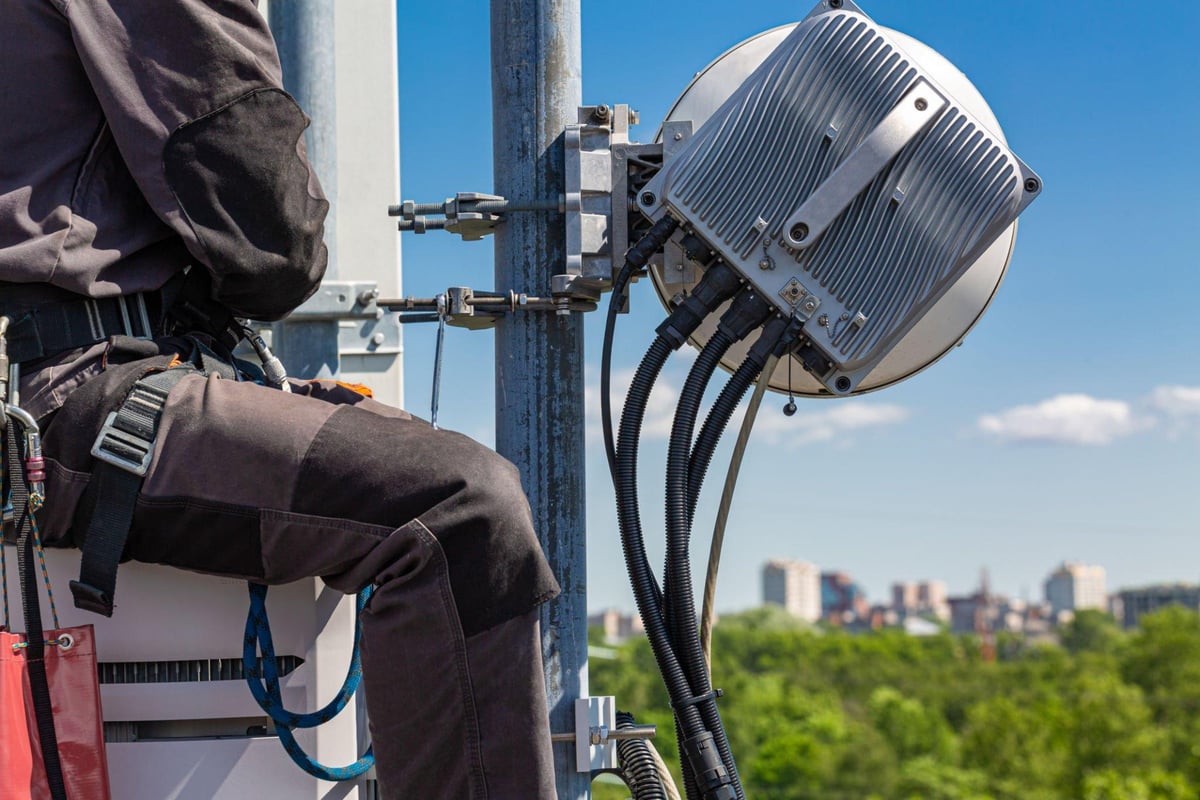
Financial aid (may be available)

Financial aid (may be available)

Financial aid (may be available)

No cost info
When it comes to embarking on a new career path, vocational training can be a valuable stepping stone. One such vocational training that has gained popularity in recent years is the Tower Technician course. This blog post serves as an informative guide on Tower Tech classes available in Portland and will provide insights into what the role entails, the training requirements, and how to find a class that suits you. Through platforms like Dreambound, students can explore various vocational training programs and find the perfect class that aligns with their career goals.

A Tower Technician, also known as a Tower Climber, is a professional who installs, maintains, and repairs cell phone towers. These technicians work at great heights and are responsible for ensuring that the communication infrastructure remains functional. They perform various tasks, including installing antennas, replacing faulty equipment, and conducting routine inspections. This role requires physical strength, technical knowledge, and the ability to work under challenging conditions.
To become a Tower Technician, specific training requirements need to be fulfilled. Although the requirements may vary from employer to employer, the fundamental prerequisites include:
High School Diploma or a GED: This is usually the minimum educational requirement for most employers.
Physical Fitness: Due to the nature of the job, prospective tower technicians should be in good physical condition.
Technical Training: Most employers prefer candidates with technical training in telecommunications or a related field. This training can be obtained through vocational programs offered by various institutions.
When choosing a Tower Tech class, several factors should be considered for the best learning experience.
Accreditation: Ensure that the course is accredited by a recognized body. This guarantees that the training provided meets industry standards.
Comprehensive Course Content: The course should cover all aspects of the job, including safety protocols, technical training, and practical exercises.
Experienced Instructors: The instructors should have real-world experience in the field and should be able to provide insights beyond the textbook.
Placement Assistance: Some training programs offer job placement assistance, which can be beneficial for students looking for their first job in the field.
The day-to-day class involves a blend of theoretical knowledge and practical training. Students learn about the technical aspects of cell towers, safety protocols, and necessary equipment. They also get hands-on experience by participating in practical exercises that simulate real-world scenarios.
The certification process typically involves completing the course curriculum and passing an examination. Some programs may also require students to complete a certain number of practical hours before awarding the certification. After successful completion of the course and the examination, students receive a certificate that validates their skills and knowledge as a Tower Technician.
Job hunting as a newly certified Tower Technician can be a daunting task. However, resources like Dreambound can make the process easier. Apart from offering vocational training programs, Dreambound also provides resources and guidance to help students find jobs in their chosen fields.
After becoming a Tower Technician, individuals may choose to further their knowledge and skills by taking up additional vocational training courses. Some options could be:
Telecommunications Specialist Course: This course further expands on the knowledge gained in the Tower Technician course and provides a more in-depth understanding of the telecommunications industry.
Safety and Rescue Training: This training course emphasizes safety protocols and rescue operations related to tower climbing.
As a Tower Technician, there are additional certifications that you can pursue to enhance your career prospects:
OSHA Certification: This certification emphasizes the safety aspects of the job and is highly regarded in the industry.
First Aid and CPR Certification: This certification can be beneficial as it equips technicians with the skills to respond to emergencies.
The use of technology in training has made learning more accessible and efficient. Virtual reality, for instance, is being increasingly used in Tower Technician training to simulate real-world scenarios and provide hands-on experience in a controlled environment.
Networking can play a crucial role in advancing your career as a Tower Technician. Participating in industry events, joining online forums, and connecting with professionals in the field can open up new opportunities.
Embarking on a career as a Tower Technician requires dedication, technical skill, and a head for heights. With the right training and resources, you can pave your way to a successful career in this field. Platforms like Dreambound are here to help you find the right vocational training program and guide you on your career path. As you explore Tower Tech classes in Portland, remember to consider your career goals, the course content, and the opportunities it may provide in the future. Happy learning!
Learn more about becoming a Tower Technician in Oregon
Explore other vocational training programs in Oregon
Check out these medical vocational training programs in Oregon
Dreambound has a bunch of guides about starting in this field, with specific ones for different cities. If you're not in this city or are thinking about moving, check out some other guides below:
Are you exploring diverse professional opportunities? Take a closer look at these resources that Dreambound has written to help in your search.
Dreambound's platform allows prospective students to find the right educational program for them through searching, filtering, and connecting with our extensive selection of career & technical education partners.
Dreambound has over 70 programs across healthcare, technology, business, and industrial trades. This includes programs such as Medical Billing, Cybersecurity, and welding.
Some of our schools offer financial aid for those who qualify. Many others offer payment plans, where you can pay the cost of class over time.
Yes, Dreambound offers many online programs. On Dreambound's search, you can filter by online, in-person, and hybrid (part online, part in-person).
Dreambound is completely free for you to use! We are supported by schools and organizations who pay to advertise on our website, so we can offer all of our career resources for free.